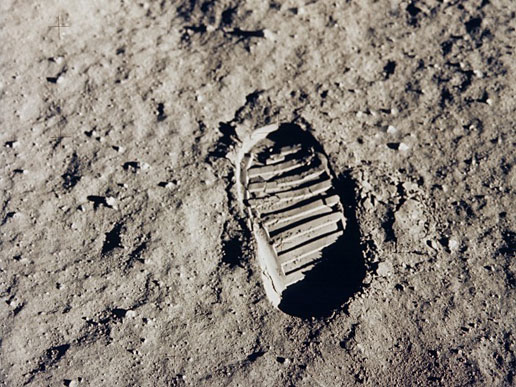Resource mining on the moon could become a reality in the near future. Now we need to bring forward international legal frameworks. I would like to bring an alternative to the American Artemis Accords into play: the Moon Treaty of 1979.
Everyone wants back to the Moon. The USA and Europe, Israel, China, India, Japan and South Korea – these countries currently have lunar missions planned or underway. Whats it all about?
For one thing, there is a transit stop to be established on the Moon on along the way to future Mars stations. The USA and Europe are planning the Lunar Gateway, a new space station in lunar orbit. But the other big issue is raw materials. The moon offers plenty of them. Gold, platinum, iridium and the gas helium-3. Mining them would not yet be economically viable – but that could change in 10 to 20 years.
Companies are already in the starting blocks. However, there is a big catch: mining raw materials on the moon is against international law. This is laid down in the UN Outer Space Treaty of 1967. The U.S. is therefore currently on an international publicity tour with the so-called Artemis Accords. With this document, they want to swear their allies to a new era in spaceflight and enable the mining of resources on the moon.
Several countries have already signed the document. Among them are the EU Member States Poland and Luxembourg. Now up for discussion is whether France – the largest space player in the EU – could also join.
I think signing the Artemis Accords would be the wrong signal. With this text, the USA is trying to circumvent the rules of the international community and to secure own advantages. I am not fundamentally opposed to resource extraction on the moon and other celestial bodies. This technology has many benefits. However, instead of rushing ahead in the shadow of a superpower, Europe should strive for international standards. We need a multilaterally accepted solution.
How about the so-called Moon Treaty? The UN resolution of 1979 is a further elaboration of the Outer Space Treaty. It is the first attempt to regulate ownership issues on celestial bodies and to put possible resource extraction in space on a legal basis.
Unlike the Artemis Accords, however, the Moon Treaty is thereby committed to the common good. The treaty emphasizes that outer space is a heritage of all humankind. It therefore provides for the establishment of an independent agency to manage mining rights in space. This agency could approve and oversee mining projects. It could also charge fees to private companies, so that part of the revenue would benefit the international community.
Unfortunately, only 17 countries have ratified the Moon Treaty so far. The document is considered a failure and legally non-binding. But the times were different back then. A renaissance of the Moon Treaty would be possible today. After all, the treaty made its way through the UN General Assembly. It was adopted there without any dissenting votes. We can build on this and campaign for ratification.
Particularly interesting: the agency referred to in the treaty has not been finally defined. The rules of the game (concessions, fees) have not yet been established. And only contracting parties may decide on these matters. If we move quickly for ratification and start institutional design, this will bring more countries to the negotiating table. No one wants to miss out on shaping the law of tomorrow.
